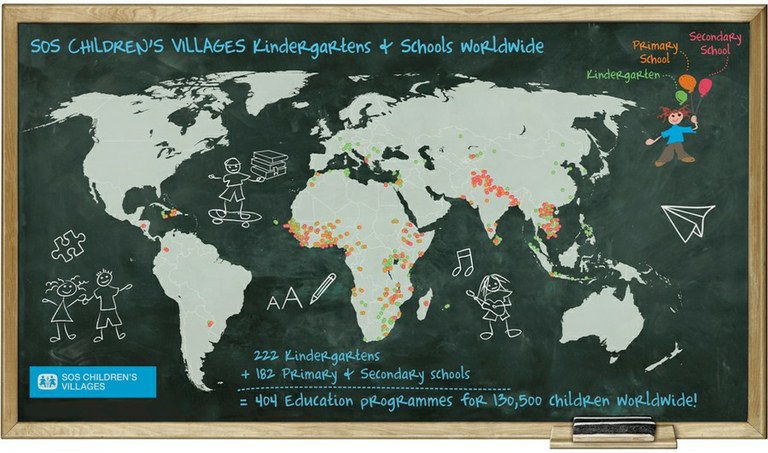The Internet provides a wealth of resources and knowledge, but unfortunately not everyone can consistently get online. In fact, two out of every three people in the world still don’t have access to the Internet.
It’s this digital divide that SOS Children, one of the largest charities for orphans and abandoned children, hoped to bridge through the Wikipedia for Schools Project.
Started in 2005, Wikipedia for Schools provides a handpicked selection of Wikipedia articles, categorized by subjects including art, history, business, design, and technology, for students worldwide to learn from, offline. The 2013 edition boasted 6,000 articles, 26 million words and 50,000 images for school kids to make use of without an internet connection! All this content can be downloaded and printed for offline use via a link on the home page of the site.
According to Wikipedia for Schools:
Wikipedia is great, but it wasn’t designed with the National Curriculum in mind. And because anyone can edit it, articles sometimes get vandalised. That’s why we’ve put together this special collection to make learning as easy and safe as it can be. Here at SOS Children, we’ve checked all the articles, tidied them up a bit, and put them together by school subject.
Today the project reaches 1.5 million viewers annually and has garnered international interest from educators, including Teach for India which has integrated the offline version in the schools where it works. This program is modeled after Teach for America, which trains young adults how to educate kids in short-term teaching roles in under-served schools.
 Students and teachers gather in Nyeri, Kenya to listen to a tutorial through the Wikipedia for Schools Project.
Students and teachers gather in Nyeri, Kenya to listen to a tutorial through the Wikipedia for Schools Project.
Wikipedia for Schools has also found a home in Nepal. An administrator from Nepal’s online learning project E-Pustakalaya, said:
Wikipedia for Schools has been really useful in public schools in Nepal. The students of remote corners of Nepal, where there is no internet access, now know about the diverse culture, religion, art, science and lifestyles of the countries around the world. All credit goes to the team that built this wonderful repository of information for schools.
You can learn more about the Wikipedia for Schools project and download the full content here.


